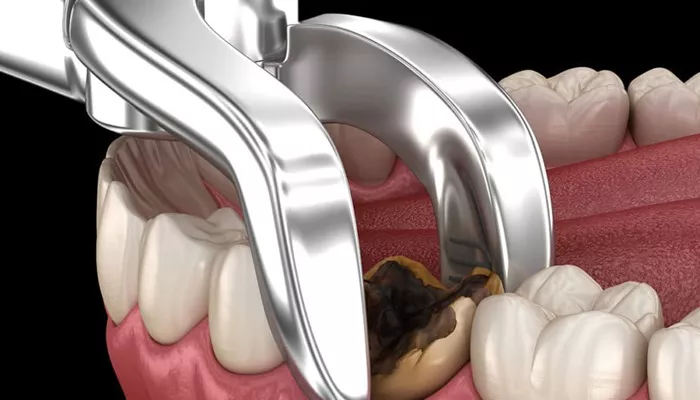Wisdom tooth extraction is a common dental procedure. Many people experience inflammation after the surgery. This inflammation can cause discomfort and delay recovery. Understanding how to manage and reduce inflammation is crucial for a smooth healing process. In this article, we will explore effective strategies to minimize inflammation after wisdom tooth extraction.
What Causes Inflammation?
Inflammation is a natural response of the body to injury or infection.
After wisdom tooth extraction, the body sends white blood cells to the site of the surgery. This response helps to heal the area but can also lead to swelling, pain, and redness.
Symptoms of Inflammation
Common symptoms following wisdom tooth extraction include:
Swelling around the extraction site
Pain or tenderness in the jaw
Difficulty opening the mouth
Bruising on the skin or inside the mouth
Fever in some cases
While some inflammation is normal, excessive swelling can be uncomfortable. It may also indicate complications.
Therefore, it is essential to manage inflammation effectively.
Immediate Post-Operative Care
Follow Your Dentist’s Instructions
Your dentist will provide specific post-operative care instructions. It is crucial to follow these guidelines closely. They may include:
- Taking prescribed medications
- Applying ice packs
- Maintaining oral hygiene
- Ice Therapy
A plying ice to the area can significantly reduce swelling. Here’s how to do it:
Use an Ice Pack: Wrap ice in a cloth or use a commercial ice pack.
Apply to the Cheek: Place it on the cheek near the extraction site.
Timing: Apply for 15-20 minutes every hour during the first 24 hours.
Rest: Take breaks in between to prevent frostbite.
Ice therapy constricts blood vessels, reducing blood flow to the area.
This helps minimize swelling and numbs pain.
SEE ALSO: When Will My Wisdom Teeth Swelling Go Down
Pain Management
Over-the-Counter Pain Relievers
Non-steroidal anti-inflammatory drugs (NSAIDs) can help reduce both pain and inflammation. Common options include:
- Ibuprofen (Advil, Motrin)
- Naproxen (Aleve)
Always follow the dosage instructions provided by your dentist or on the medication packaging. Avoid aspirin, as it can increase bleeding.
Prescription Medications
In some cases, your dentist may prescribe stronger pain medications.
Take these as directed. If you experience severe pain that does not improve, contact your dentist.
Oral Hygiene Practices
Gentle Brushing
Maintaining oral hygiene is vital for healing. However, be gentle around the extraction site:
Use a soft-bristled toothbrush.
Avoid brushing directly over the extraction area for the first few days.
Rinse your mouth gently with warm salt water after 24 hours to reduce inflammation and promote healing.
Avoid Certain Mouthwash
Avoid using alcohol-based mouthwashes for at least a week after surgery. They can irritate the extraction site and delay healing. Instead, opt for a gentle saltwater rinse.
Diet And Nutrition
Soft Foods
Eating the right foods can help reduce inflammation and promote healing. Here are some recommendations:
Soft Foods: Focus on mashed potatoes, yogurt, smoothies, and soups.
Cold Foods: Ice cream and smoothies can provide relief and reduce swelling.
Avoid Hard or Crunchy Foods: Foods that require chewing can irritate the extraction site.
Stay Hydrated
Drinking plenty of fluids is essential. Hydration helps your body heal and can reduce inflammation. Aim for at least 8-10 glasses of water a day. Avoid using straws, as the suction can dislodge the blood clot and lead to dry socket.
Lifestyle Adjustments
Rest and Recovery
Adequate rest is crucial for recovery. Plan to take it easy for the first few days after surgery. Avoid strenuous activities, heavy lifting, and vigorous exercise. This helps your body focus on healing.
Elevate Your Head
When resting or sleeping, keep your head elevated. Use extra pillows to prop yourself up. This position can help reduce swelling by preventing blood from pooling in the surgical area.
Natural Remedies
Herbal Supplements
Certain herbal supplements may help reduce inflammation. However, consult your dentist before trying any new supplements. Some options include:
Turmeric: Known for its anti-inflammatory properties. You can consume it in food or as a supplement.
Ginger: Another natural anti-inflammatory. Ginger tea can be soothing and beneficial.
Essential Oils
Some essential oils may help with inflammation. However, they should be used with caution. Dilute essential oils before applying them to the skin. Some options include:
Peppermint Oil: Known for its cooling effect.
Lavender Oil: Can promote relaxation and healing.
Monitor for Complications
Recognizing Excessive Inflammation
While some swelling is normal, excessive inflammation can indicate a problem. Watch for these signs:
Severe pain that worsens over time
Increased swelling after 48 hours
Fever over 101°F (38.3°C)
Pus or discharge from the extraction site
If you notice any of these symptoms, contact your dentist immediately.
They may need to evaluate you for possible infections or other
complications.
Conclusion
Reducing inflammation after wisdom tooth extraction is essential for a smooth recovery. By following the post-operative care instructions, managing pain effectively, maintaining good oral hygiene, and making dietary adjustments, you can minimize discomfort and promote healing. Remember to monitor your symptoms and communicate with your dentist if you have any concerns.

